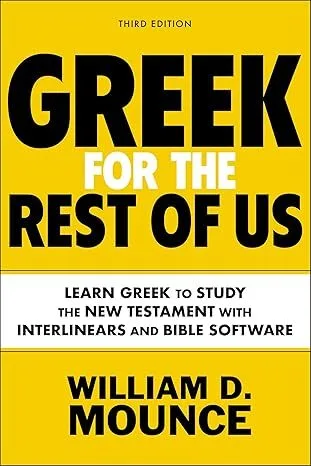Pronunciation Guide: boo-LAY-mah (βούλημα)
Basic Definition

Key Information
βούλημα

Strong’s Entry
g1013
Strong’s G1013: βούλημα (boulēma) refers to a deliberate purpose, intention, or determination that stems from careful consideration and planning. It represents not merely a passing desire but a resolute will or counsel that has been thoughtfully formed. In biblical usage, it often refers to God’s sovereign purpose or the deliberate intent of human authorities.
Etymology and Morphology
- Part of Speech: Noun (neuter)
- Root Word: βούλομαι (boulomai, G1014) – to will deliberately, to intend, to be resolved
- Language Origin: Classical Greek
- Primary Usage: Found in narrative and teaching passages, particularly in contexts involving decision-making, sovereignty, and divine purpose
- Word Family: Related to βουλή (boulē, G1012) – counsel, purpose, design
βούλημα Morphology:
- βούλημα (nominative singular) – purpose, will, determination
- βουλήματος (genitive singular) – of the purpose/will
- βουλήματι (dative singular) – with/by the purpose/will
- βούλημα (accusative singular) – purpose, will (as direct object)
Origin & History
The term βούλημα originates from classical Greek, where it was used to describe a deliberate purpose or intention resulting from careful consideration. It derives from the verb βούλομαι (boulomai), which means “to will deliberately” or “to decide upon after deliberation.” In classical literature, such as in Plato’s works, βούλημα conveyed the notion of a resolved intention that followed thoughtful deliberation.
In the Septuagint (LXX), the Greek translation of the Hebrew Scriptures, forms of βούλομαι appear frequently to translate Hebrew terms related to will and purpose, particularly when referring to divine intention. While βούλημα itself appears infrequently in the LXX, its related noun βουλή and verb βούλομαι are employed to express purposeful decision-making, especially regarding God’s sovereign plans. The early Church Fathers, including Clement of Alexandria in his “Stromata” and Origen in his commentaries, further developed the concept of βούλημα to express God’s sovereign and immutable purposes in salvation history.
Expanded Definitions & Translation Options
- A deliberate purpose or intention formed after careful consideration
- A resolved decision or determination reflecting one’s will
- A specific plan or design that one intends to carry out
- An authoritative decree or command reflecting one’s determined will
βούλημα Translation Options:
- Purpose – Emphasizes the goal-oriented nature of βούλημα, highlighting that it represents not just a casual desire but a targeted aim
- Will – Captures the volitional element, stressing the determination behind the decision
- Intention – Focuses on the deliberative aspect, indicating something planned rather than spontaneous
- Determination – Emphasizes the resolute nature of the decision, highlighting its firmness
- Counsel – Reflects the deliberative process behind βούλημα, emphasizing thoughtful consideration
Biblical Usage
In the New Testament, βούλημα appears only twice, yet these occurrences reveal significant theological implications. The first appearance is in Acts 27:43, where it describes the centurion’s deliberate purpose or intention to save Paul during the shipwreck, demonstrating how God’s sovereign purpose works even through human decisions: “But the centurion, wanting to save Paul, kept them from carrying out their βούλημα [plan].”
The second and theologically more profound usage appears in Romans 9:19, where Paul addresses questions about God’s sovereign election: “You will say to me then, ‘Why does He still find fault? For who has resisted His βούλημα [will]?'” In this context, βούλημα refers to God’s sovereign purpose that cannot be thwarted, highlighting divine determinative will that shapes human destiny and salvation history.
While βούλημα itself appears infrequently, its cognate forms (βουλή and βούλομαι) appear more frequently throughout Scripture, consistently emphasizing deliberate purpose and sovereign intention:
- “But the centurion, wishing to save Paul, kept them from carrying out their βούλημα [plan].” Acts 27:43
- “You will say to me then, ‘Why does He still find fault? For who has resisted His βούλημα [will]?'” Romans 9:19
Cultural Insights
In the Greco-Roman world of the first century, βούλημα and related terms had significant political implications. The Roman concept of auctoritas (authority) was closely connected to the idea of an authoritative will or purpose that demanded respect and compliance. When Paul uses βούλημα in Romans 9:19 regarding God’s sovereign will, his audience would have understood this against the backdrop of imperial authority—yet God’s βούλημα transcends even the highest human authority.
Furthermore, in ancient Jewish thought, particularly in rabbinic discussions about divine sovereignty, God’s purposes were understood as both determined and determining. The Jewish concept of God’s רָצוֹן (ratzon – will or pleasure) corresponds closely with βούλημα in the New Testament. This reflects the Jewish understanding that God’s purposes are not capricious but are grounded in His covenant faithfulness and wisdom. When early Jewish believers encountered the term βούλημα in Paul’s writings, they would have recognized it as expressing the unchangeable, sovereign purpose of יהוה (Yahweh) working through history toward His appointed ends—especially through the Messiah.
Theological Significance
The concept of βούλημα carries profound theological implications, particularly regarding divine sovereignty and human responsibility. In Romans 9:19, Paul uses βούλημα to describe God’s irresistible will in the context of election, emphasizing that God’s sovereign purposes cannot be thwarted. This reveals a God who is not passive or reactive but actively directing human history according to His eternal counsel.
Yet βούλημα does not imply arbitrary force. Rather, it reveals a God who works with purposeful intention, whose will is always aligned with His perfect wisdom, love, and justice. The deliberative aspect of βούλημα reminds us that God’s purposes are thoughtful, considered, and perfectly aligned with His character. When Acts 27:43 uses βούλημα for human intention (the centurion’s desire to save Paul), we see divine providence working through human decisions—God’s sovereign βούλημα accomplishing its ends even through the free actions of human agents.
This understanding of βούλημα offers tremendous comfort to believers, assuring us that nothing happens outside of God’s sovereign purpose. The apparent chaos of human history and personal suffering are encompassed within God’s greater βούλημα—His determined purpose that ultimately works for the good of those who love Him and for His glory. In the Messiah Jesus, we see the perfect fulfillment of God’s βούλημα, as salvation history culminates in God’s determined plan to reconcile humanity to Himself.
Personal Application
Understanding God’s βούλημα transforms how we approach life’s circumstances—both pleasant and difficult. When we grasp that there is a divine purpose behind all that happens, we can respond with faith rather than fear. The ship in Acts 27 was being tossed by a violent storm, yet God’s βούλημα to preserve Paul could not be thwarted, even when human plans seemed to threaten it. Similarly, our lives may encounter storms that seem to threaten God’s good purposes for us, but His divine βούλημα remains unshakable.
This truth invites us to align our personal βούλημα—our own purposes and intentions—with God’s greater purposes. Rather than resisting His will, we can submit to it, trusting that the One who works all things according to the counsel of His will has determined good for us in the Messiah. When we face circumstances we don’t understand, we can find peace in knowing they are encompassed within God’s perfect βούλημα, which is working toward our ultimate good and His glory. This doesn’t mean passive resignation but active trust—believing that though we may not understand all His purposes now, we can trust the wisdom and love behind them.
Related Words
- βουλή (boulē, pronounced boo-LAY) – counsel, purpose, determination, decree; represents divine counsel or plan, often emphasizing the deliberative process behind decisions. Unlike βούλημα which focuses on the resolved purpose itself, βουλή often highlights the deliberative counsel that leads to that purpose. See G1012
- βούλομαι (boulomai, pronounced BOO-lo-my) – to will deliberately, to intend, to desire; the verb form from which βούλημα derives, emphasizing voluntary and deliberate intention rather than emotional desire. See G1014
- θέλημα (thelēma, pronounced THEL-ay-mah) – will, desire, purpose; often used for God’s will but tends to emphasize the volitional aspect more than the deliberative planning conveyed by βούλημα. See G2307
- πρόθεσις (prothesis, pronounced PRO-the-sis) – purpose, plan, setting forth; emphasizes the aspect of setting something before oneself as a goal or intention, closely related to βούλημα but with more emphasis on the forward-looking element. See G4286
- εὐδοκία (eudokia, pronounced yoo-do-KEE-ah) – good pleasure, satisfaction, goodwill; refers to a favorable disposition or good intention that motivates action, sharing with βούλημα the idea of purpose but adding the element of delight or pleasure in that purpose. See G2107
Did You Know?
- Although βούλημα appears only twice in the New Testament, its theological significance far outweighs its frequency. The concept of God’s sovereign purpose (βούλημα) forms the foundation for Paul’s entire discourse on election and predestination in Romans 9-11, underpinning one of the most profound theological discussions in Scripture.
- In modern Greek, derivatives of βούλημα have evolved to form words related to parliamentary processes and deliberation. The Greek parliament is called the “Βουλή” (Boulē), directly derived from the ancient Greek concept of deliberative counsel, showing how this word family continues to carry the idea of purposeful decision-making in contemporary language.
- The concept of βούλημα as irresistible divine purpose played a crucial role in early Christian apologetics. When early believers faced persecution, the doctrine that human opposition could not thwart God’s βούλημα provided powerful encouragement. Church historian Eusebius documented how martyrs found strength in the conviction that their suffering was encompassed within God’s sovereign purpose (βούλημα) for the spread of the gospel, transforming their perspective on persecution.
Remember This
βούλημα reveals that behind every circumstance in our lives stands not blind fate or random chance, but the loving, wise, and sovereign purpose of a God whose determined will cannot be thwarted and whose plans for us in the Messiah are always for good.
Note: While this entry strives for accuracy, readers engaged in critical research should verify citations and keyword occurrences in their Bible translation of choice. For Biblical citations, the F.O.G Bible project recommends Logos Bible software.
Strong's g1013




